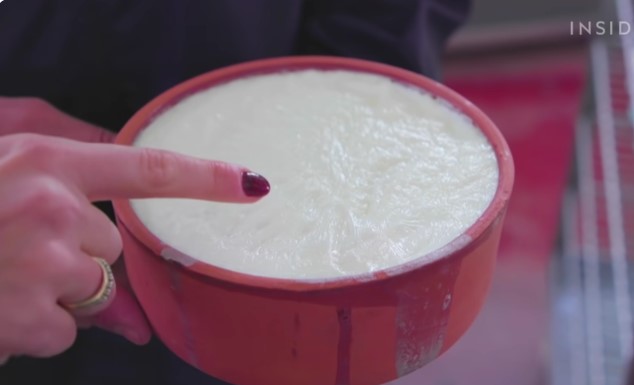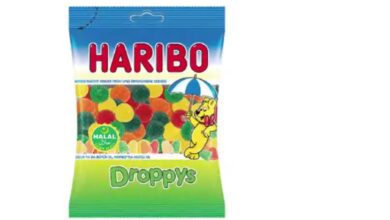Is Yogurt Halal
Yogurt is a staple in many diets worldwide, beloved for its creamy texture, rich flavor, and health benefits. As Muslims seek to follow halal dietary laws, understanding whether yogurt meets these requirements is essential. This article delves into the various factors that determine if yogurt is halal, examining ingredients, production processes, and certification standards. By the end of this detailed exploration, you’ll have a clear understanding of what makes yogurt halal and how to choose the right products for your diet.
Introduction
Yogurt, a versatile and nutritious food, has been enjoyed for centuries across various cultures. Its creamy texture and tangy taste make it a favorite for breakfast, snacks, and even desserts. However, for Muslim consumers, the question arises: is yogurt halal? Understanding whether yogurt aligns with Islamic dietary laws involves more than just looking at the primary ingredient, milk. The production process, additives, and certification all play crucial roles in determining if yogurt can be consumed by those adhering to halal guidelines. This article will provide a comprehensive guide to help you navigate the complexities of yogurt production and ensure that the yogurt you enjoy is indeed halal.

What Makes Yogurt Halal?
Primary Ingredients
Milk is the fundamental ingredient in yogurt. According to Islamic dietary laws, milk from halal animals such as cows, sheep, and goats is inherently halal. This means that if yogurt is made purely from milk and bacterial cultures, it is likely to be halal. However, several factors can influence its status.
Additives and Enzymes
Yogurt production often involves additional ingredients like sweeteners, flavorings, and thickeners. Some of these additives can be non-halal. For instance, gelatin is commonly used to thicken yogurt. If this gelatin is derived from pork or non-halal slaughtered animals, the yogurt becomes haram (forbidden).
Another critical ingredient is rennet, an enzyme used to coagulate milk. Rennet can be derived from animal stomachs, microbial sources, or plants. If the rennet is from non-halal animals, it compromises the halal status of the yogurt. Hence, it is essential to check whether the yogurt contains plant-based or halal animal-based rennet.
Production Process
The cleanliness and purity of the production process are also vital. Halal yogurt must be produced in facilities free from contamination with non-halal substances. This includes ensuring that all equipment used is clean and not previously used for haram products.
Halal Certification
The most straightforward way to ensure yogurt is halal is to look for halal certification. Certified products undergo rigorous scrutiny to ensure all ingredients and processes comply with Islamic law. Various brands offer halal-certified yogurt, making it easier for consumers to choose appropriate products.
Common Halal Yogurt Brands
Several yogurt brands have taken steps to ensure their products are halal certified. Here are some notable ones:
- Chobani: Known for its rich, creamy texture, Chobani offers a range of halal-certified products. Always check the packaging to confirm certification.
- Stonyfield: This brand emphasizes organic ingredients and offers halal-certified options, ensuring no non-halal additives are used.
- Dannon: Many of Dannon’s products, like the Light + Fit Key Lime Greek Yogurt, are halal, provided they meet ingredient and production standards.
- Liberté: A popular choice in Canada, Liberté offers halal-certified Greek yogurt, renowned for its high quality and taste.
- Parmalat: While not all products are halal, Parmalat provides specific halal-certified options, making it a viable choice for Muslim consumers.
Where to Buy Halal Yogurt
Finding halal yogurt is easier today than ever before, thanks to increased awareness and availability. Here are some tips on where to buy halal yogurt:
- Supermarkets: Many major supermarkets carry halal-certified yogurt brands. Look for a dedicated halal section or check labels for certification.
- Specialty Stores: Halal and Middle Eastern grocery stores often stock a variety of halal yogurt brands.
- Online Retailers: Websites specializing in halal products offer a convenient way to purchase certified yogurt, often with home delivery options.
Frequently Asked Questions
Can yogurt be made with non-dairy milk?
Yes, yogurt can be made with non-dairy milk such as soy, almond, coconut, or oat milk. These alternatives are suitable for those who are lactose intolerant or prefer a plant-based diet. The process involves using a non-dairy yogurt starter or a portion of non-dairy yogurt as a culture.
Is there a difference between Greek yogurt and regular yogurt in terms of being halal?
Both Greek yogurt and regular yogurt can be halal, provided they meet the halal certification requirements. The main difference lies in the straining process, which makes Greek yogurt thicker and higher in protein. The halal status depends on the ingredients and production methods used.
Does flavored yogurt have a different halal status than plain yogurt?
Flavored yogurt can have different halal status compared to plain yogurt because of added ingredients like flavorings, colorings, and sweeteners. It’s essential to check if these additives are halal-certified to ensure the entire product is halal.
Can I use store-bought yogurt as a starter for homemade halal yogurt?
Yes, you can use store-bought yogurt as a starter for making homemade yogurt, as long as the store-bought yogurt is halal-certified. This ensures that the cultures used in your homemade yogurt are permissible under Islamic dietary laws.
How can I be sure my yogurt is halal?
To ensure yogurt is halal, look for halal certification on the packaging. Certification indicates that the product has been inspected and meets the requirements of Islamic dietary laws. Additionally, you can check the ingredient list for any non-halal components.
Are there any health benefits to consuming halal yogurt?
Yes, consuming halal yogurt offers various health benefits, including improved digestion due to probiotics, better bone health from calcium, and enhanced immune function. The nutritional content remains the same whether the yogurt is halal or not, as long as it meets the dietary requirements.
Can babies consume halal yogurt?
Yes, babies can consume halal yogurt once they are ready for solid foods. Yogurt is a good source of calcium and protein, and the probiotics can aid in digestion. However, it’s best to consult with a pediatrician before introducing yogurt to your baby’s diet.
Does halal yogurt taste different from non-halal yogurt?
No, halal yogurt does not taste different from non-halal yogurt. The taste and texture are determined by the ingredients and the fermentation process, not by the halal certification. The certification only ensures that the ingredients and production methods comply with Islamic dietary laws.
Is homemade yogurt more likely to be halal than store-bought yogurt?
Homemade yogurt can be more likely to be halal if you control the ingredients and ensure they are halal-certified. However, store-bought halal yogurt is also widely available and convenient. Both options can be halal if proper care is taken in ingredient selection and preparation.
How long does halal yogurt last in the refrigerator?
Halal yogurt, like any other yogurt, typically lasts up to two weeks in the refrigerator. It’s essential to keep it tightly sealed and stored at a consistent temperature to maintain its freshness and prevent spoilage.
Can I find halal yogurt in most grocery stores?
Yes, halal yogurt is increasingly available in many grocery stores, especially in areas with a significant Muslim population. You can find it in the dairy section, often labeled with a halal certification symbol.
Are there any specific brands known for producing halal yogurt?
Several brands are known for producing halal yogurt, including Chobani, Danone, and various local and international brands that offer halal-certified products. It’s essential to check the packaging for the halal certification mark.
Is frozen yogurt halal?
Frozen yogurt can be halal if it is made from halal-certified ingredients and follows the halal production process. Many frozen yogurt brands offer halal-certified options, but it’s always best to check the specific product’s certification.
Can I use halal yogurt in cooking and baking?
Yes, you can use halal yogurt in cooking and baking just like any other yogurt. It can be used in recipes for marinades, dressings, baked goods, and more. The halal status ensures that the ingredients comply with Islamic dietary laws.
Where can I buy halal yogurt?
Halal yogurt can be bought in many grocery stores, specialty halal markets, and online. Look for the halal certification on the packaging to ensure it meets your dietary requirements. Some popular online retailers also offer a range of halal yogurt options.
Conclusion
In conclusion, yogurt can be a halal food product, but it requires careful consideration of ingredients, production processes, and certification. By choosing products with halal certification and scrutinizing ingredient lists, Muslim consumers can enjoy the delicious and nutritious benefits of yogurt without compromising their dietary principles. Whether you prefer plain yogurt or flavored varieties, there are plenty of halal options available to suit your taste and dietary needs. Always check labels and when in doubt, reach out to manufacturers for confirmation. Enjoy your yogurt with confidence, knowing it aligns with your values and dietary requirements.
Read also:





